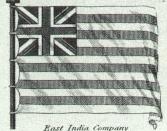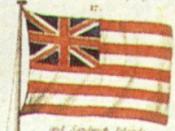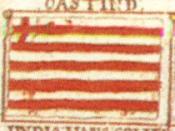Under the Ming dynasty, China experienced one of the greatest economic expansions in its history. This expansion affected every area of Chinese economic life: agriculture, commerce, and maritime trade and exploration. The Chinese allowed the Portuguese to establish a trading station in Macao, after years of negotiation. However, the impact from Portugal was not limited to trade. Jesuit missionaries had major success in China using their knowledge of astronomy to gain admission in the emperor's circle. the Portuguese helped to revise the Chinese calendar, proving themselves useful to the emperor. The emperor appointed the missionaries to official positions in the palace. Chinese officials were given opportunities to convert to Christianity. However, Christianity was later denounced as a subversive to the Confucian principle and was silenced.
By the early 1700's, British ships began arriving, establishing a trading post. Great Britain was rapidly becoming a land of tea drinkers, regarding Chinese tea as the best in the world.
The British East India Company completely monopolized the new trade in the open Chinese seas. The spread of free trade ideas came from the West. A concept developed as a reaction against mercantilism, it means that government should not restrict or interfere with international trade. Opium was introduced, thus that product was exported in increasing quantities. Opium addiction then spread like wildfire among the Chinese people. The sale was protested against, later banned amidst the cries of protest. China was well on its way to becoming an urban, industrial, and mercantile economy.



Plagiarised
http://www.wsu.edu:8000/~dee/MING/COMM.HTM
2 out of 3 people found this comment useful.